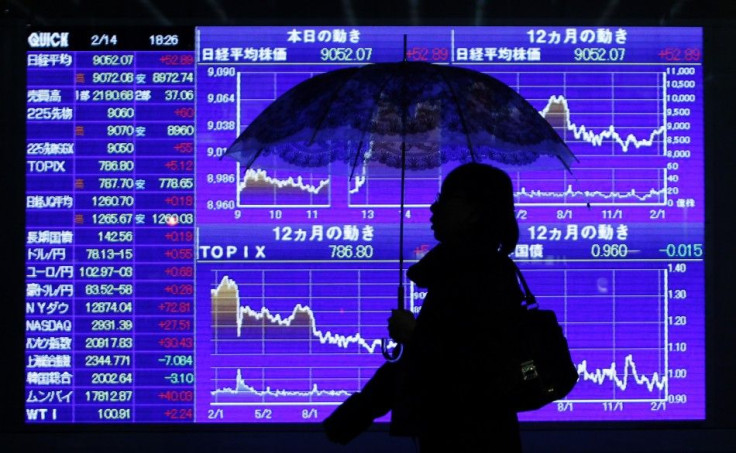Asian Stocks Week Ahead: Market Participants To Focus On Stimulus Measures

Asian stocks ended mixed last week as market players continued to wait for policy makers to come up with bold stimulus measures to boost the weakening global economy.
The biggest worry of investors continues to be the deepening economic crisis in the euro zone. Euro zone gross domestic product data for the second quarter released last week presented a bleak picture.
The German economy grew at 0.3 percent, down from 0.5 percent in the previous quarter. The French economy had 0 percent growth in the second quarter, same as in the previous quarter, indicating its difficulty in meeting the growth target of 0.3 percent for the year. Earlier, the Bank of France said that the country's economy could slip into recession in the third quarter.
The economies of Italy and Spain have already contracted 0.7 percent and 0.4 percent, respectively, while Portugal shrank 1.2 percent and Greece 6.2 percent in the second quarter as compared to the same period last year.
European Central Bank President Mario Draghi's pledge last month to "do whatever it takes" to save the euro has yet to be translated into action. Investors feel that bold measures from the ECB, including easing in the monetary policy, are urgently needed to boost liquidity in the global financial system. A re-launch of the ECB's bond-buying program is the absolute minimum to be expected.
Market participants feel the European Financial Stability Facility's (EFSF) current remaining capacity of about 220 billion euros ($275 billion) is not enough to guarantee sustained low borrowing costs for Spain and Italy. Market players sense that the policy makers in the euro zone will need to urgently follow their words with action.
Market participants sense that the euro zone crisis is also taking its toll on the rest of the world with activity slowing down in all major economies, including China and Japan, in the second quarter. Investors sense that there is an urgent need for the Bank of Japan (BoJ) to announce monetary easing measures to rejuvenate the country's economy, which grew at 0.3 percent in the second quarter, down from 1.2 percent in the first three months of the year.
Investors feel that the continued faltering of the economic growth is expected to put pressure on the central banks around the world to announce bold stimulus measures to boost the financial condition. With financial stresses escalating, market participants feel that bold measures, including easing in the monetary policy, are urgently needed to boost liquidity in the global financial system.
In India, the Comptroller and Auditor General's (CAG) report on the coal blocks allocation was tabled in the parliament last week. The report, which accused the government of costing the exchequer about $33 billion by underpriced coal fields selling, is set to rock the parliament next week with the opposition pressing for Prime Minister Manmohan Singh's resignation. This could affect market confidence.
There is not much to be expected on the data front. The U.S. National Association of Realtors' home sales report, which measures the change in the annualized number of existing residential buildings that were sold during the previous month, will be made public Wednesday. This report that measures the strength of the U.S. housing market, is considered an important indicator of the overall economic strength. It is expected to rise to 4.52 million units in July, up from 4.37 million units in June.
© Copyright IBTimes 2024. All rights reserved.











